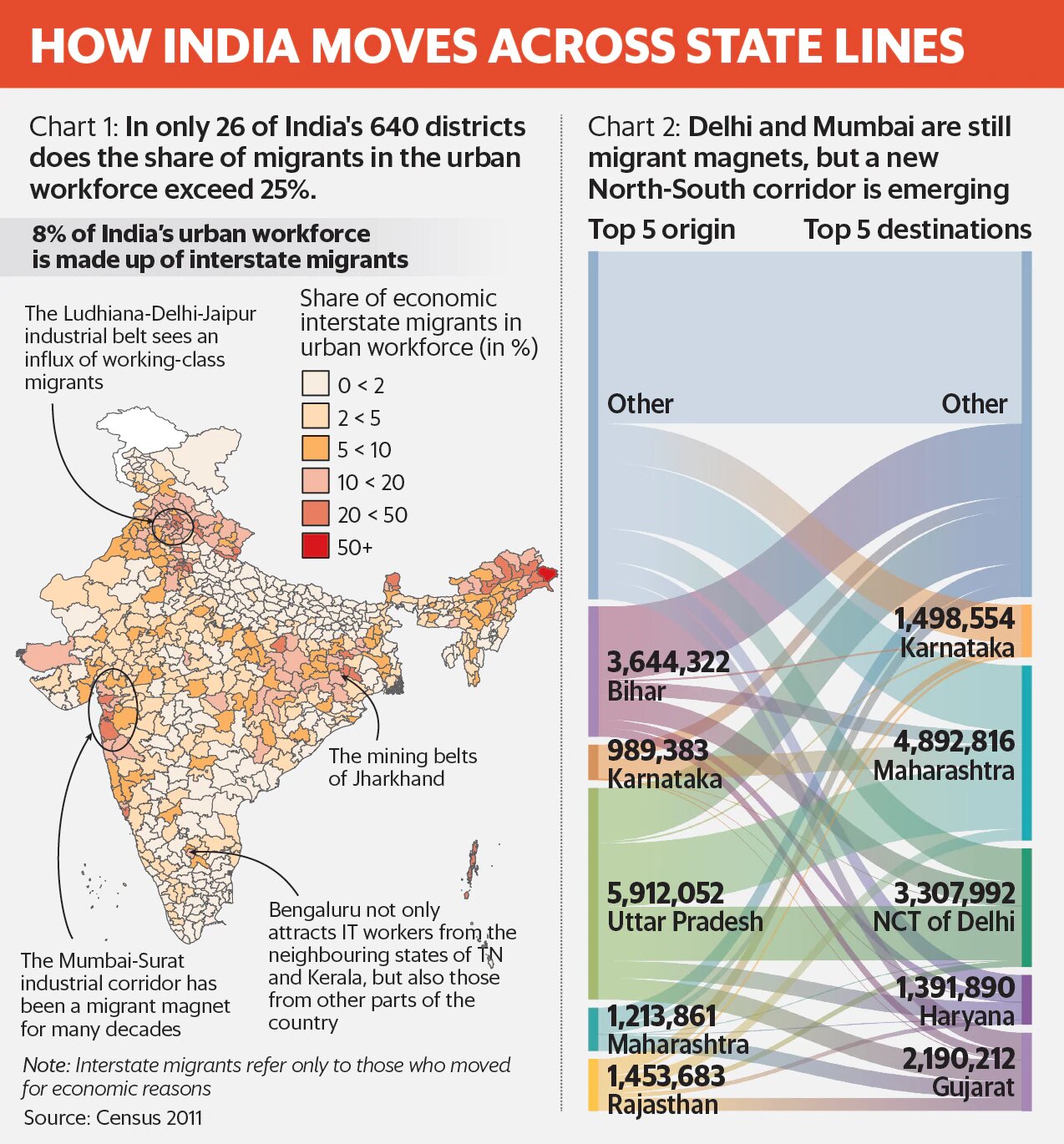Indian Economy
Jobs For Locals
- 17 Aug 2019
- 6 min read
The Article is based on “The case against job quotas for locals” that published in Livemint on 4th August. It talks about the growing trend of jobs for locals and the associated concerns.
Context
- Nativism, the cry for job protection of locals, is rearing its head again in India.
- The Andhra Pradesh Assembly recently passed a legislation that reserves 75% of industrial jobs in the state for locals
- Recently Madhya Pradesh Chief Minister also said that the state government is mulling a law to ensure 70 per cent jobs to local youths in the private sector.
- It is highly likely that other states such as Maharashtra and Karnataka with large pools of migrant labour imitate this legislation.
Earlier efforts by states
- Maharashtra in 2008 introduced 80% reservation for locals in industries that seek state incentives and tax subsidies, but it could not bring any credible evidence on number of jobs created.
- Gujarat introduced 85% reservation for locals as far back as 1995, but it was never enforced, either in the private or public sectors.
- Tamilnadu’s state industry minister announced in January to ensure at least 50% reservation of jobs for residents of the state.
All these restrictions remained only on paper due to lack of implementation mechanism and reluctant attitudes of industries bodies.
Constitutional Provisions regarding Interstate Migration
The Constitution of India guarantees freedom of movement and consequently employment within India through several provisions.
- Article 19 ensures that citizens can “move freely throughout the territory of India".
- Article 16 guarantees no birthplace-based discrimination in public employment.
- Article 15 guards against discrimination based on place of birth and
- Article 14 provides for equality before law irrespective of place of birth.
What does Data tell?
- The 2011 Census data show that much of the migration to the big cities is intra-State rather than inter-State.
- As per the census, work related interstate migration to urban areas comprises, on average, less than 10% of the urban workforce, a far cry from concerns on interstate migrants swamping the labour market.
Why such legislations?
- Economic sluggishness and the lack of enough jobs in the market is the primary reason for such politics driven by “son of the soil theory”.
- Vote-bank Politics: Such promises during elections draw voters’ attention and the elected governments are forced to act on their promise.
- Land Acquisition for industries has some preconditions from farmers/villagers , who are losing their land, to provide jobs to their family members or local youth.
Impact of such legislations
- Reduced job creation due to deterrence for industries in a state with such restrictions. This would do more harm to natives than actually benefiting them.
- Ease of Doing Business: Such restrictions may hamper the growth and development prospects of the respective state as well as the country by affecting ease of doing business.
- Diverse labour pool is a strength of Indian economy. Such restrictions on labour mobility would seek to disregard this advantage.
- It will increase risks of labour shortages, can trigger a rise in unemployment, aggravate wage inflation, render labour markets rigid and incompetent and exacerbate regional inequalities.
- It may promote aggressive regionalism and thus a threat to the unity and integrity of India.
Way Forward
- The best way to grow out of nativism is to ensure economic recovery and provide enough job opportunities for youths.
- Skill training and proper education should be the key focus for the states to prepare their masses to compete in the free market.
- Instead of nativism, states need to create a framework where safe interstate migration for work is facilitated and fiscal coordination is pursued to enable the portability of social security benefits. If this is done, interstate migration would rise and provide more opportunities to remedy regional disparities.
- Matching skills seamlessly across geographies within India would also facilitate the ease of doing business, a much valued goal continually emphasized for faster growth.
|
Drishti Input “Discuss the implications of the growing trend of reservation of jobs for locals in states. Is this trend undermining the unity and integrity of India?” |





